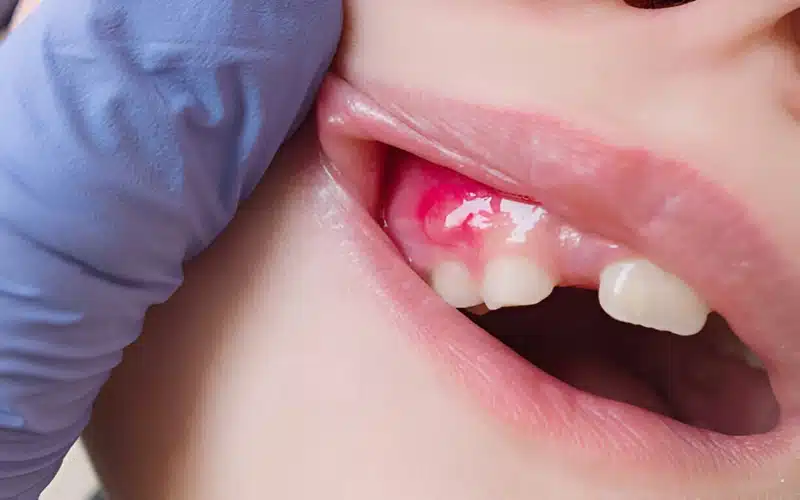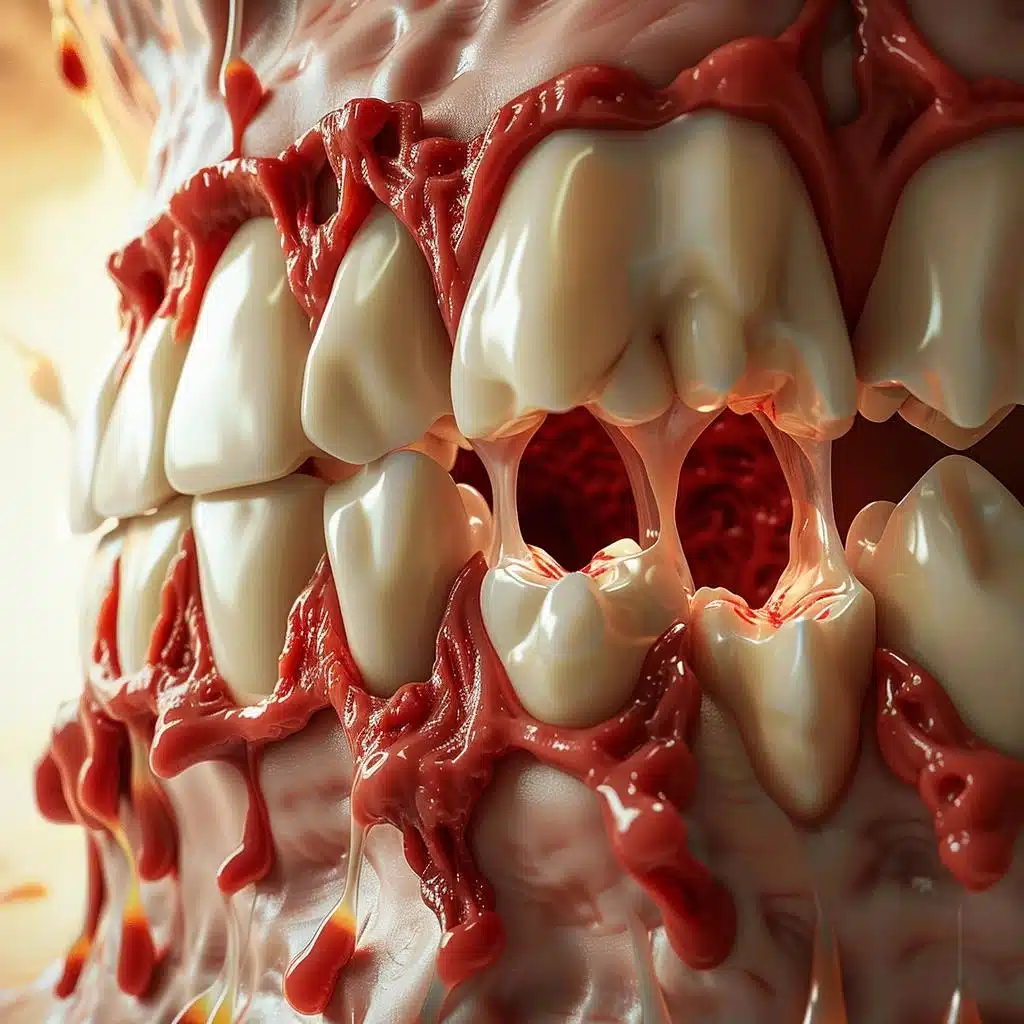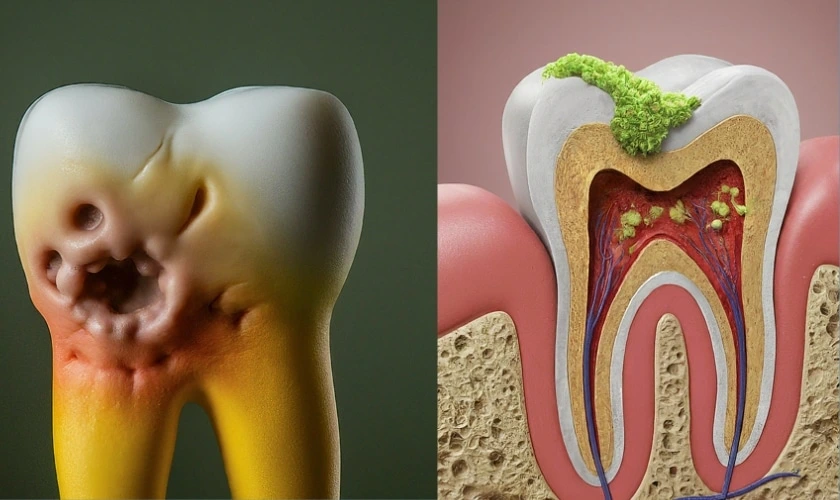How Long Until a Tooth Infection Kills You? Understanding the Importance of Dental Care
Probably the first things that come to mind when you think of your teeth are wonderful meals and smiles. What transpires, though, if a tooth infection slips through? Thinking about it might be quite unsettling, particularly if you’re wondering how long a tooth infection will take to kill you. I know it sounds dramatic. However, being aware of the hazards can enable you to maintain your general health and take better care of your teeth.
Untreated tooth infections have the potential to escalate from minor discomforts, such as nagging toothaches, to more severe conditions. Imagine a small antagonist scheming in silence as you go about your daily business! There’s a strong possibility you can halt it in its tracks if you catch it early.So, let’s dive into what you need to know to keep those toothy troubles at bay and stay safe.
How Long Until a Tooth Infection Kills You?
Understanding Tooth Infections
A dental abscess, another name for an infection of the tooth, is caused by bacteria that have entered the interior of the tooth, typically as a result of trauma or decay. Pus accumulates as a result, which can cause excruciating pain and swelling. Early detection of infection symptoms is crucial; they frequently include intense pain, gum swelling, and even fever. This seemingly small problem has the potential to grow quickly if ignored.
Infections in the teeth have the potential to spread to the tissues around them, resulting in difficulties with the jaw and possibly the neck. If the infection is not treated right away, there is an increased chance of systemic infection, in which germs enter the circulation.This emphasizes how crucial it is to get dental care as soon as problems arise. How long until a tooth infection kills you is a question that may eventually arise from the life-threatening conditions brought on by ignoring the issue.
Treatment for a tooth infection is usually simple with current dentistry procedures. In addition to maybe needing to do extractions or root canals, dentists frequently prescribe antibiotics to treat infections. The prognosis improves with earlier intervention.

Risk Factors for Complications
The speed at which a tooth infection can result in serious health problems depends on a number of factors. Complications are more likely in people with compromised immune systems, such as those with diabetes or autoimmune illnesses. Their bodies might not be able to combat infections as well, therefore it’s critical to take care of dental problems as soon as possible.
The person’s general state of health is another crucial factor. Chronic medical disorders might make healing more difficult and increase the amount of time it takes for a tooth infection to go away. Furthermore, lifestyle choices like smoking and eating poorly can impair immunity, making a person more susceptible to serious diseases. When considering how long it will take to die from a tooth infection, this increases the stakes.
Finally, the infection’s location is important. An infection in the lower jaw may impact the heart, whereas an infection in the upper jaw may have the potential to travel to the brain. Anyone dealing with dental disorders needs to be aware of these dangers because they emphasize the significance of prompt intervention and continued care.
Signs and Symptoms to Watch For
Early detection of a dental infection may be the difference between life and death. The symptoms might vary from a slight soreness to excruciating pain that travels all across the jaw. Other common indicators include poor breath, gum swelling, and an unpleasant taste in the mouth. It is imperative that you get medical attention as soon as possible if you observe these symptoms.
A tooth infection can occasionally cause systemic symptoms including chills, fever, or a general feeling of unwellness. These signs suggest that the infection might be spreading and call for a more intensive course of care. Whether you’re wondering how long a tooth infection will kill you, knowing these warning signs might help avert a disastrous situation.
Additionally, you should definitely need emergency care if you have trouble breathing or swallowing. These signs could indicate that the infection has spread to areas other than the teeth and could be immediately dangerous to your health. It is crucial to emphasize the importance of awareness when it comes to dental health because being watchful and proactive can save lives.

Treatment Options Available
There are several ways to treat dental infections in order to reduce pain and eliminate the infection. To determine the severity of the issue, the majority of dentists will begin with a comprehensive examination and may order X-rays. Often the initial line of defense, antibiotics assist to eradicate the bacteria and lessen inflammation.
It can be required to employ more intrusive therapies if the infection has seriously damaged the body. By extracting the diseased pulp from the tooth, a routine operation called a root canal can save the affected tooth. When a tooth can no longer be saved, extraction might be the best course of action. The hazards and advantages of each approach differ, as does the time required to recuperate.
In the end, the length of time it takes to die from a tooth infection can be affected by how well the therapy works. Prompt action and following the dentist’s advice can significantly lower the dangers and accelerate healing. Throughout their recuperation, patients should continue to be watchful, keeping an eye out for any indications of recurrence and scheduling routine dental exams.
Long-Term Health Consequences
If left untreated, a tooth infection can cause more than just the initial soreness and suffering. Sepsis, a potentially fatal reaction to infection, is one of the major problems that can arise from an infection spreading to other areas of the body. Anyone inquiring how long until a tooth infection kills you must be aware of these possible results.
Furthermore, a persistent tooth problem may detract from your overall well-being. Eating and speaking difficulties brought on by persistent pain might affect social interactions and general well-being. The strain of managing persistent dental issues can have a negative impact on mental health as well.
And lastly, there are monetary ramifications. Advanced infection treatment can be expensive and necessitate several trips to the doctor. Regular dental exams and proper oral hygiene are examples of preventive treatment that can save costs and avert problems. It’s critical to understand the long-term effects of neglecting a dental infection if you want to keep your financial and physical health intact.







